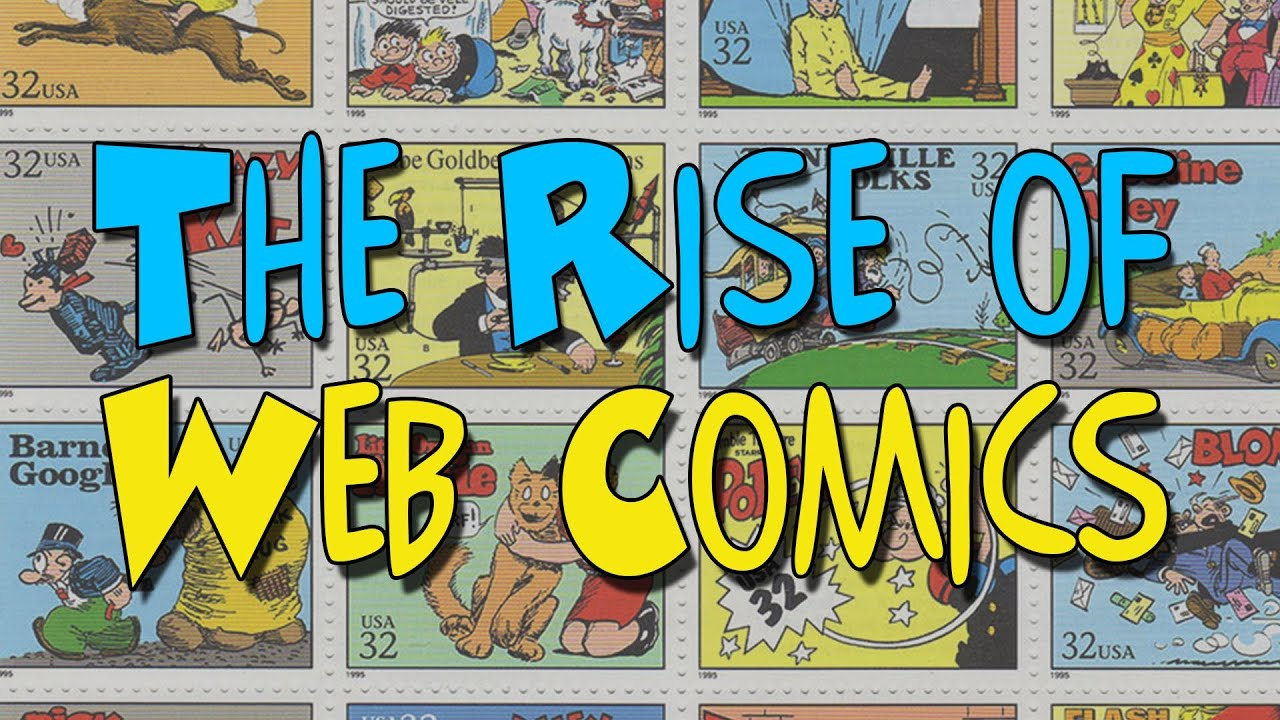How has the internet changed fiction? The impact of the internet on literature is unprecedented, transforming not only how stories are told but also how they are consumed. In an age dominated by social media, readers have shifted from passive recipients to active participants, their preferences sculpted by likes, shares, and viral trends. This evolution has saturated modern fiction and technology with an array of voices, decreasing the traditional gatekeeping role of critics and editors. As a result, the depth of storytelling may risk becoming overshadowed by fleeting online popularity, ultimately altering our reading habits and the essence of how narratives resonate within a digitally connected world.
The digital landscape has rewritten the rules of storytelling, ushering in a new paradigm often referred to as fiction in the age of social media. Writers now find themselves navigating an interactive realm, where their creations must capture the collective zeitgeist shaped by online discourse and real-time feedback. The internet’s effect on storytelling is profound, as it enables instantaneous communication and accessibility, reshaping how narratives are constructed and delivered. Simultaneously, the advent of technology has altered traditional reading habits, fostering an environment where readers seek quick satisfaction rather than immersive literary experiences. This evolution challenges authors to balance audience engagement with the preservation of genuine emotional truths in their works.
The Internet’s Impact on Fiction Writing
The advent of the internet has fundamentally altered the landscape of fiction writing. Authors today are navigating a digital environment where the traditional gatekeepers of literature, such as publishers, critics, and bookstores, have been supplanted by the viral dynamics of social media. Writers must now contend with an audience that is not just passive consumers of their stories but also active participants in the narrative through comments, shares, and likes. This shift has led to a greater focus on writing that resonates with popular trends, potentially at the expense of deep, personal insights that were once the hallmark of great literature.
Moreover, the internet encourages a style of writing that often prioritizes immediate engagement over the exploration of complex themes or characters. Writers may feel compelled to create works that are catchy and easy to digest, diluting the profound emotional truths that enrich the human experience. In this social media-driven age, the pressure to cater to the whims of the digital audience risks sidelining the authenticity and depth that fiction should ideally represent.
Reading Habits in the Digital Age
The proliferation of the internet has shifted reading habits dramatically, affecting how, when, and what we read. Unlike previous generations who spent evenings engrossed in novels, many contemporary readers are now distracted by the plethora of content available online, from news articles to social media updates. This overarching presence of the internet has created a culture where short attention spans are becoming the norm, making it challenging for long-form fiction to capture the interest of readers who are used to quick bites of information.
Additionally, the convenience of eBooks and online resources means that while access to literature has increased, the depth of that engagement may have suffered. Readers are more likely to skim through texts rather than immerse themselves fully, which could lead to a superficial understanding of narrative complexities. As writers adapt to this new landscape, they must consider how to craft engaging stories that can still hold the reader’s attention in a world rife with distractions.
Social Media’s Role in Fiction Promotion
In today’s digital landscape, social media has become a crucial tool for authors seeking to promote their work. Platforms like Twitter, Instagram, and TikTok allow writers to engage directly with potential readers, build their brand, and share snippets of their writing to create buzz. This shift represents a significant departure from traditional book marketing strategies, where authors relied heavily on publishers and literary agents to generate interest.
However, while social media offers unprecedented opportunities for visibility, it also introduces challenges. Authors often find themselves balancing the need to connect with their audience while remaining true to their creative vision. The immediacy of feedback can lead to self-censorship, where writers may alter their narratives to conform to the preferences of their followers, potentially compromising artistic integrity in the process.
The Evolution of Storytelling Through Technology
Storytelling has always evolved in response to technological advancements, and the internet is no exception. The rise of digital platforms has birthed new forms of storytelling, such as interactive fiction and transmedia narratives, allowing authors to explore innovative ways to engage with their audiences. These changes challenge traditional notions of narrative structure and encourage creativity, offering writers new avenues for expressing their ideas.
Yet, as technology advances, it raises questions about the nature of storytelling itself. The speed and immediacy associated with digital platforms may lead to a reduction in narrative depth and complexity, which are vital for exploring intricate human emotions. Writers must navigate this terrain carefully, balancing innovation with the age-old elements of storytelling that resonate with readers on multiple levels.
Navigating the Challenges of Online Research
The internet has revolutionized the way writers conduct research, making it easier to access information than ever before. Authors can now find extensive archives, scholarly articles, and historical documents with just a few clicks, streamlining the research process. This level of accessibility fosters more informed fiction, as writers draw on a rich tapestry of data and perspectives to enhance their narratives.
However, this convenience comes with its own set of challenges. The abundance of information online can lead to misinformation and an overwhelming sense of choice, complicating the research process further. Writers must develop critical skills to discern credible sources from unreliable ones, ensuring that their work is not only engaging but also accurate and trustworthy.
The Loss of Traditional Plot Devices
One significant impact of the internet on fiction is the diminishing presence of traditional plot devices such as characters getting lost or disconnected from each other. In a world where everyone is perpetually connected through devices, the once common narrative theme of estrangement, confusion, or disconnection feels increasingly unrealistic. Many classic stories hinged on characters facing these challenges, but today such scenarios seem less plausible as technology bridges gaps instantaneously.
This loss of traditional narrative tension poses a challenge for writers seeking to create compelling stories. Striking a balance between contemporary realities and classic storytelling techniques becomes essential for crafting narratives that can still evoke a sense of suspense and intrigue, reminding readers of the emotional core that drives great fiction.
Emotional Truth in Fiction Amid Digital Noise
Despite the distractions posed by the internet, many authors believe that fiction retains its power to convey deep emotional truths. In a world inundated with surface-level content, literature offers a refuge where readers can explore complex feelings and engage with the intricacies of human relationships. The internet may complicate how stories are told, but it also amplifies the desire for narratives that resonate at a deeper level.
To navigate this duality, writers must find ways to incorporate the immediacy of contemporary experiences with the richness of emotional narratives. Crafting stories that reflect real-world issues, while still grounding them in profound emotional truths, becomes essential for resonating with today’s readers, ensuring that fiction remains relevant and impactful.
The Role of Fiction in Fostering Empathy
Fiction has the unique capacity to foster empathy among readers, allowing them to experience lives and perspectives different from their own. In an increasingly connected world, where the internet often serves as a breeding ground for conflict, literature provides a vital space for compassion and understanding. Through storytelling, readers can engage with diverse characters and complex situations, cultivating their emotional intelligence.
As writers navigate the intricacies of modern communication, the challenge lies in sustaining this level of empathy within their work. In a society increasingly driven by quick judgments and social media echo chambers, authors must strive to create stories that not only entertain but also provoke thought and promote understanding, illustrating the fundamental role fiction plays in bridging cultural divides.
The Future of Fiction in a Digital Era
Looking ahead, the future of fiction remains intertwined with the evolving landscape of technology and the internet. As digital platforms continue to influence readers’ preferences and behaviors, authors will need to adapt their storytelling techniques to resonate with new generations of readers. This includes embracing multimedia storytelling approaches that incorporate visual elements and interactive formats alongside traditional narrative forms.
While the challenges presented by the internet are significant, they also offer opportunities for innovation and creativity in literature. By exploring new tools for engagement, writers can ensure that fiction continues to thrive, addressing contemporary themes while preserving the emotional depth and narrative complexity that define the genre. The interplay between technology and storytelling will shape the future of literature in ways yet to be fully realized.
Frequently Asked Questions
How has the internet changed fiction writing?
The internet has significantly transformed fiction writing by influencing how writers research, connect with audiences, and approach storytelling. Writers can now access vast resources online, making research more efficient and integrating modern elements into their narratives. Additionally, the shift from readers to audiences means writers often consider public opinion and social media trends, which can impact their creative freedom.
What is the impact of the internet on literature today?
The internet’s impact on literature includes changing reading habits and altering how stories are consumed. Readers are now often distracted by various online content, affecting their engagement with novels. However, the internet also provides platforms for indie authors to publish their work, share stories directly with readers, and gather instant feedback, democratizing literature.
How do modern readers engage with fiction in the age of social media?
In the age of social media, modern readers engage with fiction through interactive platforms that allow for real-time discussions and community building around books. Readers often share their opinions on online forums, followed by influencers, which can greatly influence a book’s popularity. This has led to a shift where the audience’s voice can impact which stories are told and how they are shaped.
What are some challenges that fiction writers face due to the internet’s effect on storytelling?
Fiction writers face challenges such as the need to appeal to a potentially fickle audience influenced by social media. The pressure to conform to public taste can stifle creativity, as writers may prioritize trending subjects over private truths necessary for compelling narratives. Additionally, the ease of access to information can lead to superficial storytelling, undermining the depth of character development and thematic exploration.
In what ways has the advent of the internet changed how people read fiction?
The advent of the internet has altered reading habits by providing instant access to a plethora of content, which may distract readers from immersive storytelling. Many now find it harder to dedicate long, uninterrupted periods to reading, leading to a more fragmented reading experience. However, the availability of eBooks and online book recommendations has positives, as it encourages conversations about literature among readers.
What role does emotional truth play in fiction in the internet age?
In the internet age, emotional truth in fiction remains vital as it allows stories to resonate on a deeper level. While the internet can pressure writers to cater to popular demand, authentic emotional narratives can successfully transcend this challenge. This pursuit of emotional truth becomes even more necessary as readers seek relatable experiences in a fast-paced, digitally influenced world.
Can the internet’s effect on storytelling be considered mostly positive or negative?
Opinions vary on whether the internet’s effect on storytelling is positive or negative. On one hand, it has facilitated access to information and broadened platforms for diverse voices. On the other hand, it can dilute the authenticity and depth associated with traditional storytelling, as writers may feel compelled to conform to social media trends, potentially prioritizing marketability over the integrity of their narratives.
How has the availability of online resources influenced fiction research?
The availability of online resources has revolutionized fiction research, allowing writers to access archives, articles, and multimedia content instantaneously. This ease of research enables authors to enhance their narratives with thorough context and accuracy that would have previously required extensive time spent at libraries, thereby enriching their storytelling.
How do influences from the internet shape modern fiction?
The influences of the internet shape modern fiction by steering narratives toward themes and styles that resonate with online audiences. Writers often incorporate contemporary issues seen in society and on social media, reflecting cultural shifts and emerging discussions within their work, thus enabling fiction to stay relevant and connected to readers’ realities.
What new storytelling techniques have emerged in fiction due to the internet?
New storytelling techniques that have emerged due to the internet include the use of multi-platform narratives, where stories are shared across social media, blogs, and interactive websites. Additionally, many authors experiment with formats like serial storytelling, blending traditional narratives with real-time engagement and feedback, which can reshape the pacing and structure of their work.
| Key Points | Writers’ Perspectives |
|---|---|
| Fiction’s Historical Significance | Fiction has long explored the human experience, from ancient texts to modern stories. |
| Impact of Social Media | Readers’ preferences are shaped by public opinion and social media, making authors more cautious about their writing. |
| Research Accessibility | The internet allows easier access to information, enhancing the research aspect of fiction writing. |
| Decline of Traditional Plot Devices | Plot devices involving characters getting lost are less common due to constant connectivity. |
| Emotional Depth in Fiction | Some argue that while internet influences exist, fiction remains vital for exploring emotional truths. |
| Change in Reading Habits | Readers are now more distracted and have less time dedicated to deep reading. |
| Importance of Face-to-Face Experiences | Some aspects of human life and empathy come from real-life interactions that cannot be replaced by online resources. |
Summary
How the internet changed fiction is a topic that has garnered various opinions from writers. While the internet has immensely transformed the way fiction is researched and consumed, many argue that it has also diluted the depth of personal expression in storytelling. As writers navigate the vast influences of social media and public opinion, traditional elements of fiction, including profound emotional truths, may be at risk of being overshadowed by fleeting trends. Nonetheless, the richness and complexity of fiction still hold valuable insights into the human condition, emphasizing the need for heartfelt narratives amidst the changing landscape.



